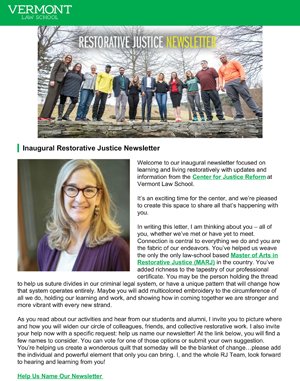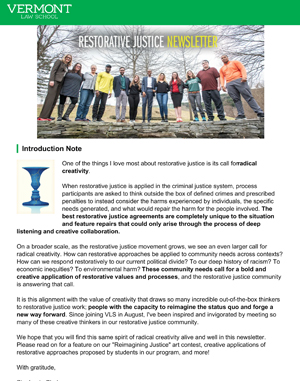A Vermont report on possible blockchain legislation, completed Jan. 15 and released to the public Wednesday, explains the benefits and challenges associated with using the technology for state recordkeeping. Oliver Goodenough, director of the Center for Legal Innovation at Vermont Law School, contributed to the report.
Titled "Blockchain Technology: Opportunities and Risks," the report concludes that a valid blockchain—a database of bitcoin, or digital currency, transactions—"is a reliable way of confirming the party submitting a record to the blockchain, the time and date of its submission, and the contents of the record at the time of submission." The report splits its findings between how to approach blockchain use in the private sector and in Vermont's governmental processes.
The report provides encouragement on the possibility of adopting legislation that could give express legal recognition for private blockchain activity.
"Providing legal recognition of blockchain technology may create a 'first mover' advantage with the potential to bring economic activity surrounding the development of blockchain technology to Vermont …" The report recognizes that capturing these benefits is a speculative matter, stating that "… this potential is difficult to quantify and challenging to capture due to the nature of the technology."
On the question of adoption of blockchain technology for use in Vermont's public records, the report advises caution: "At present, the costs and challenges associated with the use of blockchain technology for Vermont's public recordkeeping outweigh the identifiable benefits."
The report goes into detail on the nature of blockchain technology and its public policy implications. Report attachments include a possible model for a statute providing legal recognition.
The Vermont Legislature commissioned the report in its last session. "Blockchain Technology: Opportunities and Risks" was compiled by the Office of the Vermont Secretary of State, the Department of Financial Regulation, and the Office of the Attorney General, in consultation with the Center for Legal Innovation at Vermont Law School and a Vermont delegate to the Council of Commissioners on Uniform State Laws. A copy of the report is available at legislature.vermont.gov.
The Center for Legal Innovation at Vermont Law School is dedicated to helping create a future where innovation and entrepreneurial energy redefine legal education, the practice of law, and law itself. CLI provides both a scholarly and practical environment for an exploration of what law is and a platform to help shape what law will be, including a summer LegalTech Hacktivist program open to technology-proficient undergraduates and law students interested in technology. For more information about the Center for Legal Innovation, visit vermontlaw.edu/cli.
###
Vermont Law School, a private, independent institution, is home to the nation's largest and deepest environmental law program. VLS offers a Juris Doctor curriculum that emphasizes public service; three Master's Degrees—Master of Environmental Law and Policy, Master of Energy Regulation and Law, and Master of Food and Agriculture Law and Policy; and four post-JD degrees —LLM in American Legal Studies (for foreign-trained lawyers), LLM in Energy Law, LLM in Environmental Law, and LLM in Food and Agriculture Law. The school features innovative experiential programs and is home to the Environmental Law Center, South Royalton Legal Clinic, Environmental and Natural Resources Law Clinic, Energy Clinic, Food and Agriculture Clinic, and Center for Applied Human Rights. For more information, visit www.vermontlaw.edu, find us on Facebook, and follow us on Twitter.


















